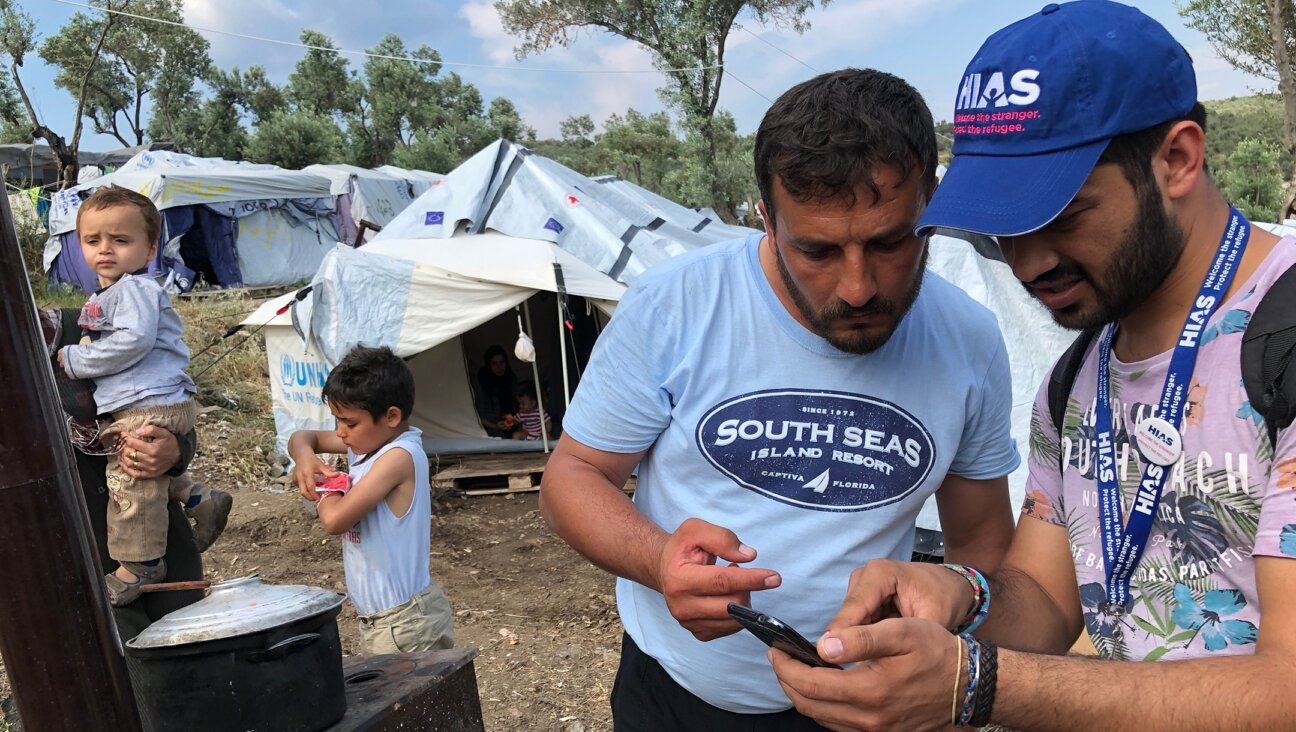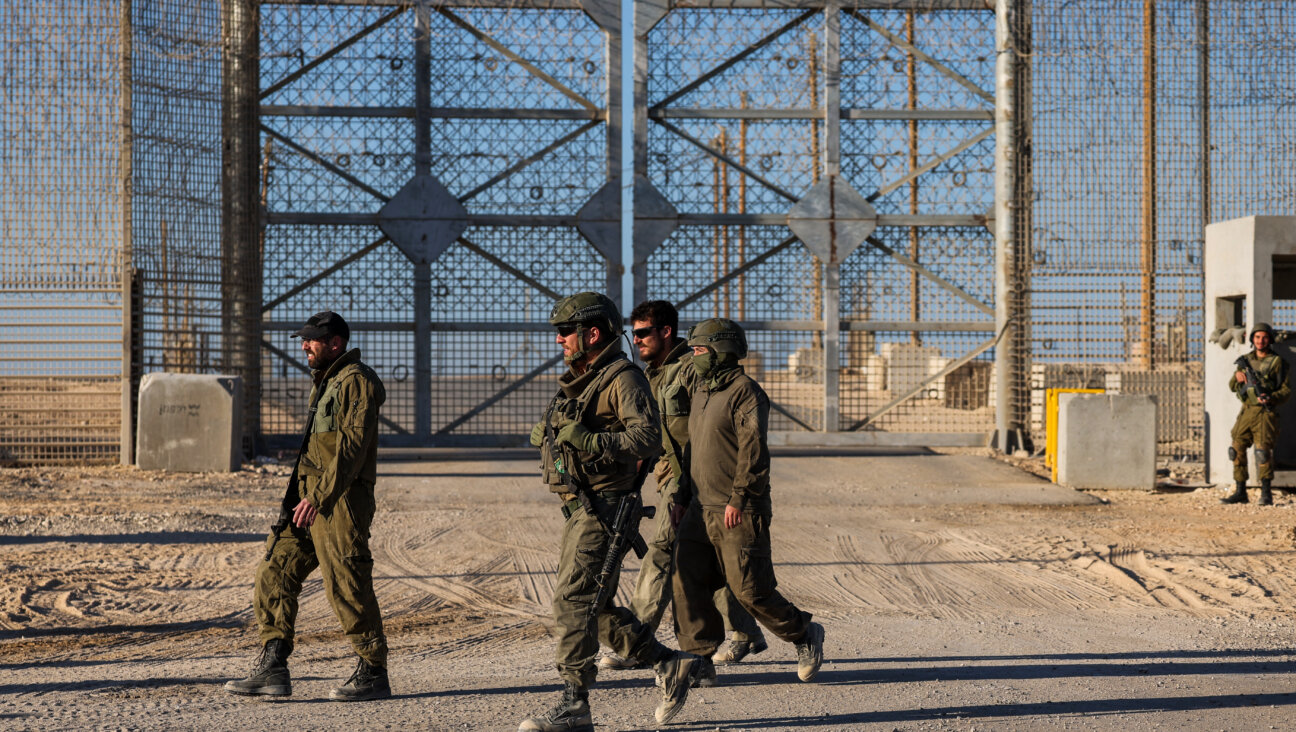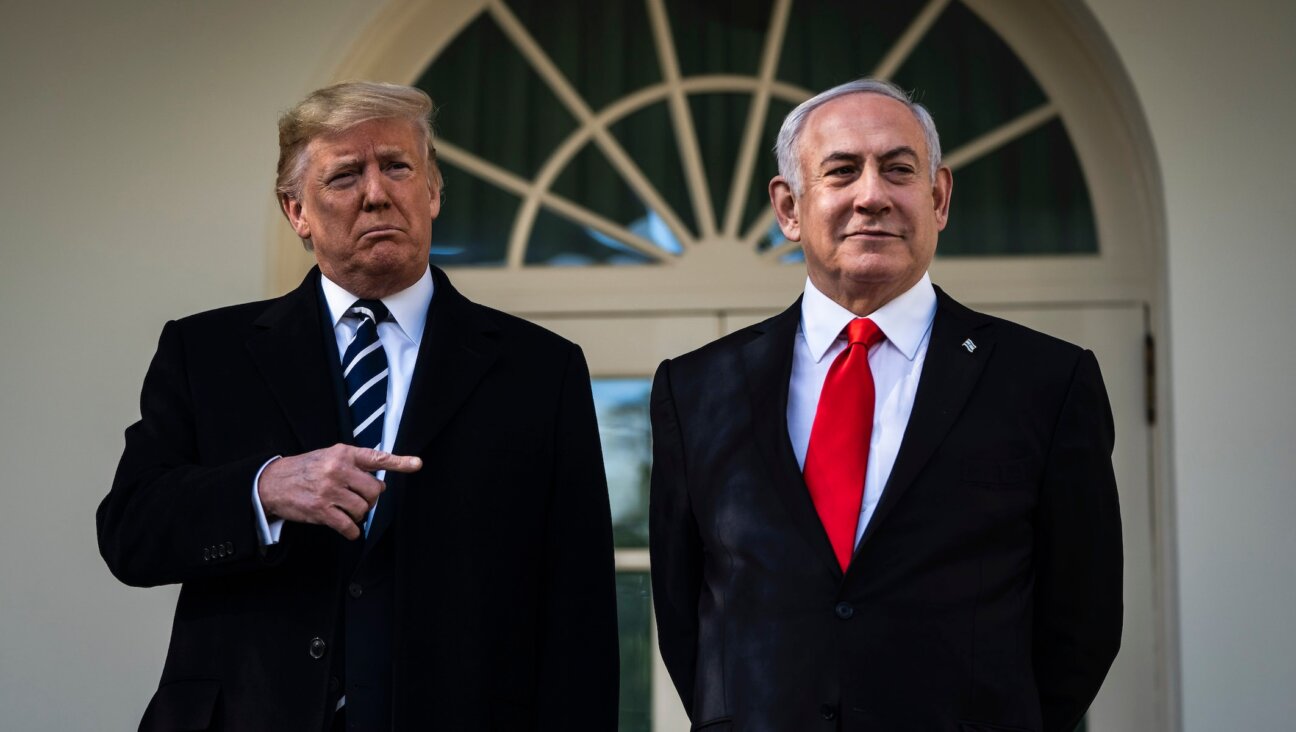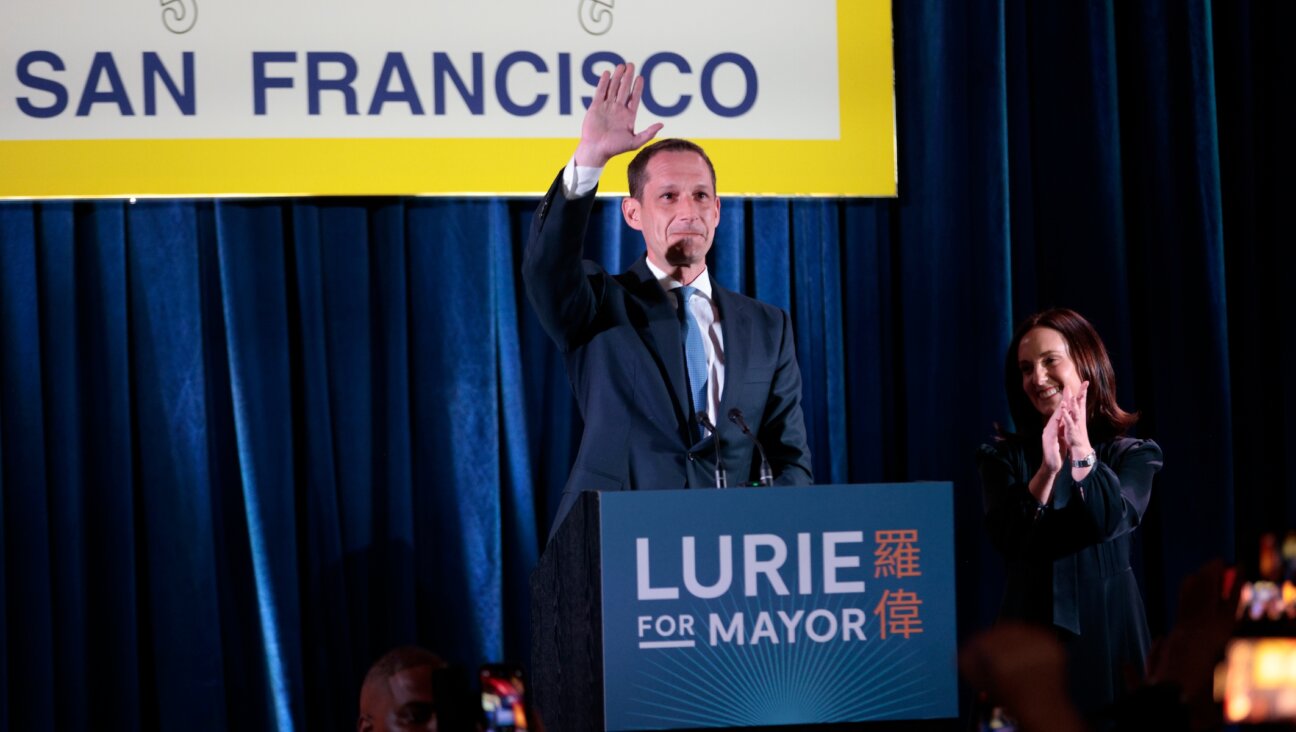Foxhole Mitzvah: Ranking Rabbi Heads to Front
With a gentle voice, a doughy, pleasant face and a knit yarmulke atop thinning brown hair, Mitchell Ackerson is a sort of Every Man’s Rabbi.
Except for the camouflage uniform, that is.
The senior chaplain for the 220th Military Police Brigade and, incidentally, the senior rabbi of the army’s entire combat theater, Ackerson sat March 28 at the Crown Heights, Brooklyn, home of Rabbi Jacob Goldstein, an army pal who is state staff chaplain of the New York Army National Guard. The house was abuzz with activity; it was just minutes before the Sabbath began and just days before Ackerson’s scheduled deployment to Kuwait and Iraq.
Ackerson was more than ready for his April 2 departure. “We’re waiting to do our jobs,” he said, noting that logistical problems had delayed his leaving for five weeks. “It’s terribly frustrating. We’re needed, we feel we’re needed, and we’re sitting here in the U.S., waiting to get out. It gets you angry.”
With roughly 8,000 soldiers and a handful of chaplains to oversee, Ackerson expects to spend most of his days traveling down Iraq’s dusty, dangerous roads. “Fellow soldiers are dying, soldiers are wounded,” he said. “We want to be there for them.”
It is estimated that Jews constitute between .5% and 1% of deployed troops, or somewhere between 1,500 and 3,000 soldiers. Yet as a chaplain, Ackerson’s duty is to minister anyone in need, Jewish or not. “Soldiers want the chaplain there,” he said. “I’ve been handing out Bibles, crucifixes, all sorts of things. My representation of God is not abstract — it’s, ‘I’m right here, next to you.’”
“Our motto is, ‘trust in your M-16, but trust in God more,’” he said.
Of the axiom “there are no atheists in foxholes,” Ackerson said, “That’s very, very true.” Religion in the military, he added, “is not a luxury, it is a necessity. This is war — people hate us, soldiers can use the extra help. War is a life-changing event. When the first bullet whizzes past, you realize this isn’t an adventure, it’s serious business. If you want adventure, go whitewater rafting.”
Asked what it’s like going to war amid a global, anti-war environment, Ackerson said, “No one prays for peace more than soldiers. The average soldier doesn’t want to go to war. They prepare for it, they train for it, and they’re prepared to die for our country.”
“The concept of peace by strength, we strongly believe that’s true,” Ackerson said. Nonetheless, he added, “we, as military personnel, have no political agenda. Our job is to follow the orders of the president and Congress. We let politicians and others argue the merits.”
Ackerson was never one to fantasize about a military career. Reared in the upscale Jewish enclave of Long Island’s Five Towns, he said, “I grew up thinking Jews didn’t serve in the army. That’s just not the case.”
In 1986, as a 28-year-old rabbinical student at Yeshiva University — he also holds masters degrees in education and social work — Ackerson was “looking for a decent summer job,” he said. “The Army said they had a great opportunity and they’ll pay me 3,000 to 4,000 bucks. I said, why not?”
At the time, Ackerson’s wife, Amy, joked that he should “drop and give me 10,” as they say in the army. He did three push-ups and collapsed. Basic training at Ft. Riley, Kan., whipped him into shape — “It was nothing,” he said. For the next seven years, Ackerson was on active duty, serving in Ft. Campbell, Ky., Ft. Bragg, N.C., and as a battalion chaplain during the first Gulf War.
Being an observant Jew out in the field is “a personification of what a Jew is,” Ackerson said. “I found I really enjoyed it. I’m a flexible guy. I’m not a picky eater. So I go out in the field and eat tuna fish for three, four days.” Other soldiers, he said, were particularly impressed by his religious resolve. “I came to realize how important it was to have a rabbi around.”
Wanting to send his children — now 14 and 17 — to day school, Ackerson eventually left active duty and joined the reserves, where he has worked in a variety of units in the greater Washington, D.C., area. A resident of Baltimore, Ackerson’s day job is director of Baltimore’s Life Bridge Health System, a network of hospitals and nursing homes. He also teaches Jewish history at Beth Tefillah Dahan High School.
Ackerson often speaks at Jewish schools about being a rabbi in the army. But thanks in part to “the overwhelming anti-military sense in the Jewish community,” Ackerson said, too many Jewish organizations and congregations hesitate to hire rabbis who serve in the reserves. “Those young men and women risk their lives for your liberties. Don’t you think those young people deserve [a rabbi] while you’re sitting at home, safe?”
“There’s a desperate need for more rabbis to join the military,” he said. Recently, while working out at his current base at Aberdeen, Md., Ackerson said, “a soldier came up to me and said he had been in the Army for 20 years and had never seen a rabbi. The fact is, a lot of soldiers never see a rabbi.”
According to Rabbi David Lapp, director of the JWB Jewish Chaplains Council, there are 28 rabbis on active duty in the military. Seven have been deployed to the Gulf: one in the Air Force, one in the Marines, one in the Navy and four in the Army. There are about 50 rabbis in the reserves.
At 45, Ackerson notes he is two years shy of retirement eligibility. “I wish more people would step up to the plate,” he said.
By edict of the Geneva Convention, chaplains are non-combatants and do not carry weapons, despite having been trained in the military arts. “I have faith God will see me through this and see me home safely,” he said.
“Plus,” he added, “I have an assistant who is an excellent marksman.”
A message from our CEO & publisher Rachel Fishman Feddersen

I hope you appreciated this article. Before you go, I’d like to ask you to please support the Forward’s award-winning, nonprofit journalism during this critical time.
At a time when other newsrooms are closing or cutting back, the Forward has removed its paywall and invested additional resources to report on the ground from Israel and around the U.S. on the impact of the war, rising antisemitism and polarized discourse.
Readers like you make it all possible. Support our work by becoming a Forward Member and connect with our journalism and your community.
— Rachel Fishman Feddersen, Publisher and CEO























